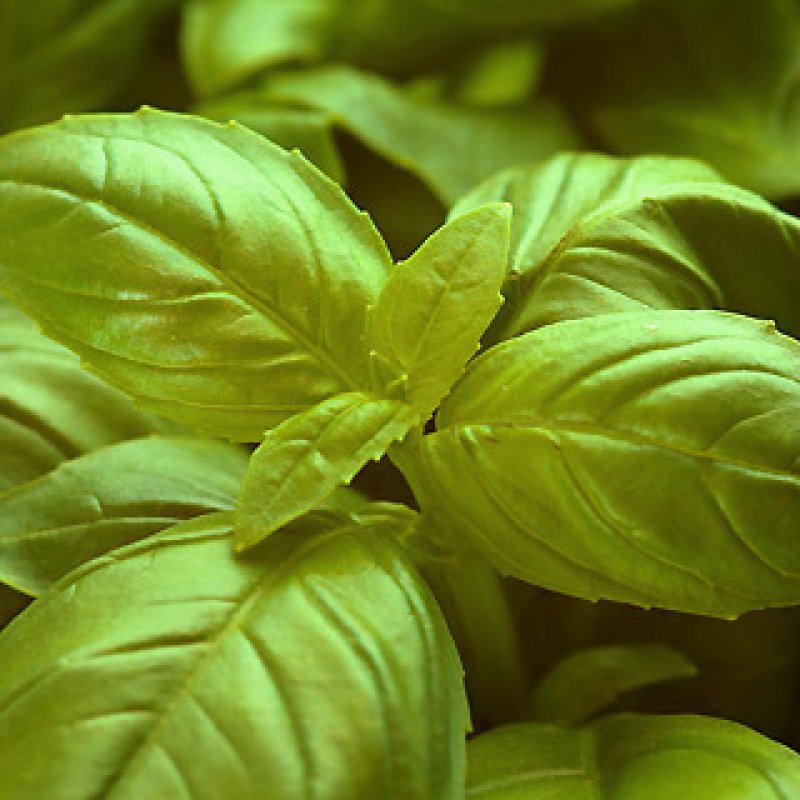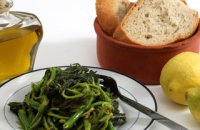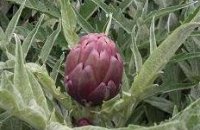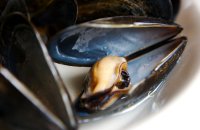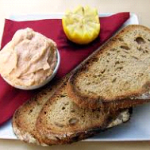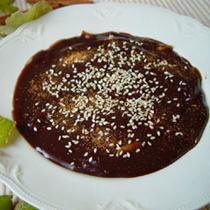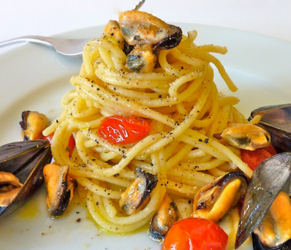Almost all Europeans use the same name for this herb; basilicum. It comes from the Greek words “basileus” (king), and “okimon”, “ώκιμον» from the verb “ozein" (smells, releases odour). The important thing to know about basil is exactly that; it is the one that smells royally.
Basil was first cultivated in India 5000 years ago and it still prefers warm and dry places. There are more than 40 varieties with different and special scents, due to the plant’s essential oils.
Even though Greeks seem to appreciate this plant, it is mainly used for "decorative" purposes; one finds basil planted on nearly every street of the Greek islands. Greeks preen themselves with a sprig of basil behind the ear, sprinkle holy water with it in church, and write songs about it.
In the cuisine of the French and Italian Riviera, basil is a part of almost all recipes, such as insalata caprese, soupe au pistou, ratatouille, maccheroni al pomodoro and Pesto alla Genovese! The latter is one of the most popular sauces, and the eternal pride of Genoa and Liguria; endless arguments revolve around pesto, what it is, what its ingredients should be, and what we can actually do with it, arguments that have not been resolved since the Ordine dei Cavalieri della Confraternita del Pesto was established in 1992.
But what exactly is Pesto? It is a raw salad consisting of basil, salt, olive oil, grated cheese, pine nuts and garlic, which should be discreet, but present. “No garlic, no pesto”, insist the people of Genoa. A scandal occurred in July 2001 when, at the G8 Congress dinner, a simple, dry, garlic-free 'basil sauce' was served, instead of the jewel of Liguria’s kitchen. It was a great insult for the town that housed the Congress, and dark conspiracy theories evolved involving the mafia, multinational cooperation and certain Japanese diplomats. Speculation continued until reporters and the public realised the far simpler explanation; Cavaliere Silvio Berlusconi loathes the smell of garlic. The defenders of pesto joined the anti-globalisation demonstrators on the streets, welcoming the Italian Prime Minister, armed with garlic braids. The famous Genoan comedian Beppe Grillo, commented on chaos surrounding the city, saying: “After the G8, Genoa is a different town. Today, Pesto alla Genovese has a whole different meaning.”
Despite the unfortunate events that took place, and the meaning of its name ('pestare' means to thump or pound with a pestle), pesto is the definition of tranquility, delicacy, and grace. A pestle is needed for its preparation, but it is best to smoothly and calmly mash the ingredients than to thump them. This smoothness will be transmitted to the sauce; at least this is what the famously lyrical Italian chefs claim.
Genoans may seem fanatical about the overwhelming quality of Ligurian basil, but they do have their reasons; in 2004 they managed to register basil as a product with Protected Designation of Origin (PDO), and are now seeking a European Union "STG" (Guaranteed Traditional Speciality) mark for pesto which meets strict Ligurian criteria.














































